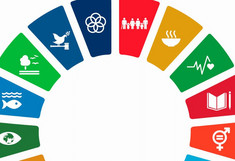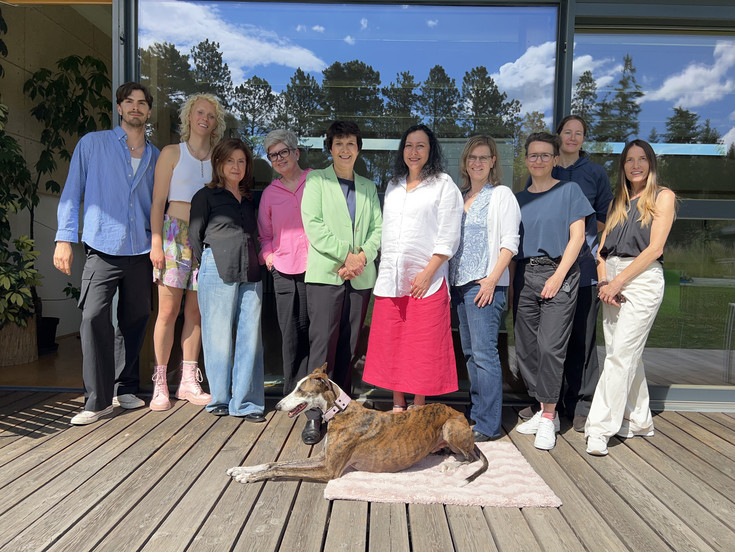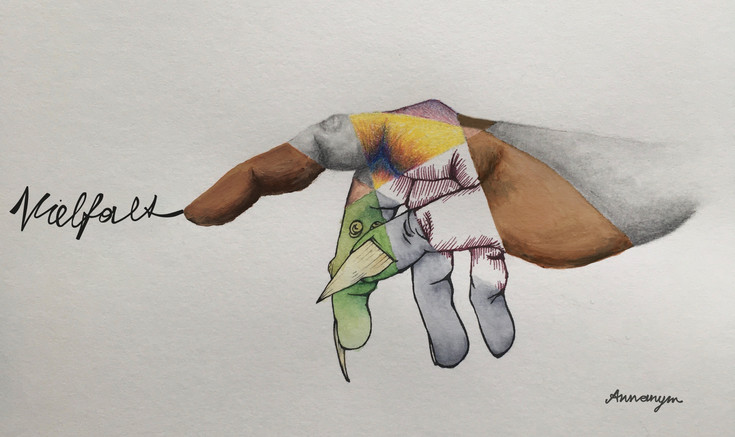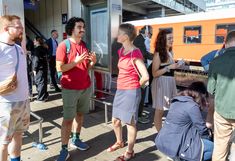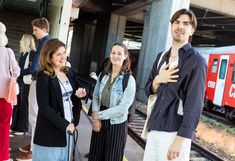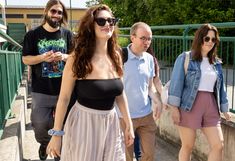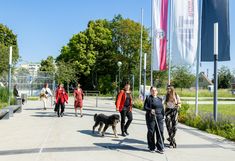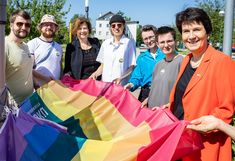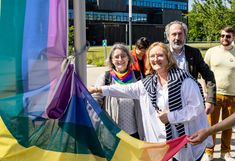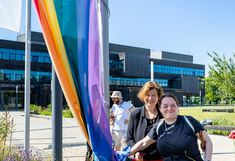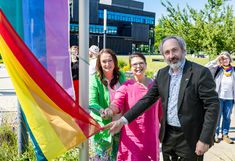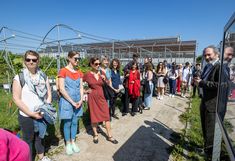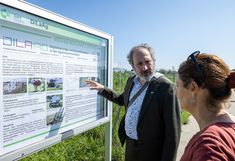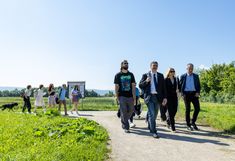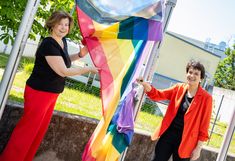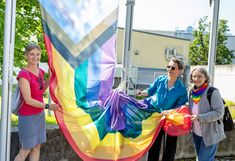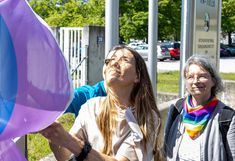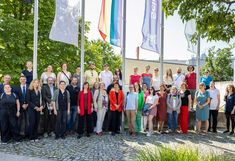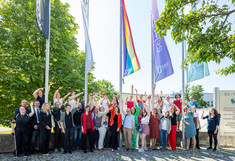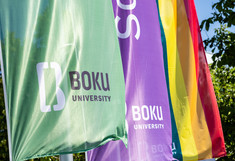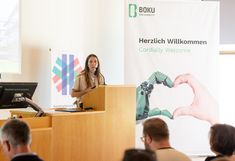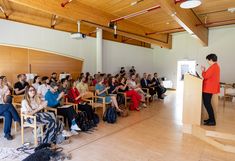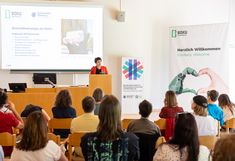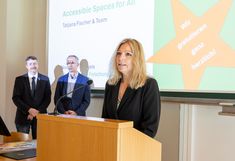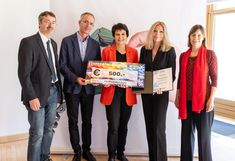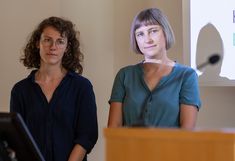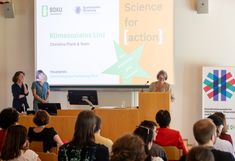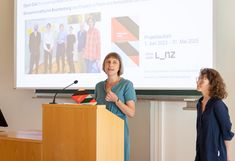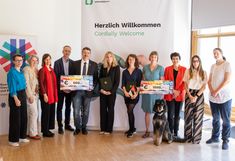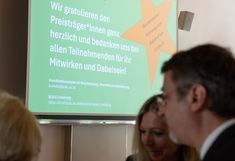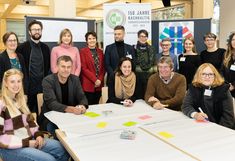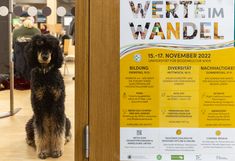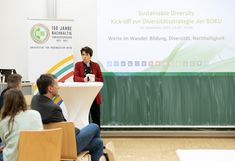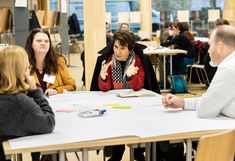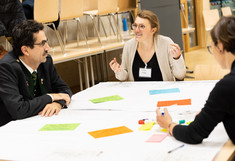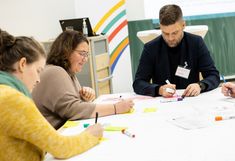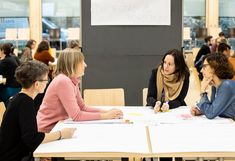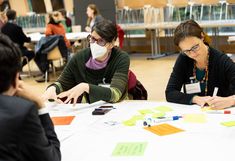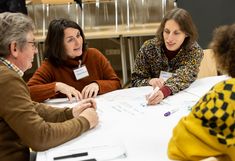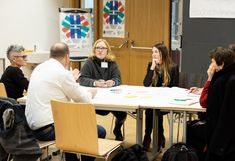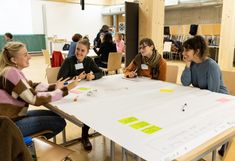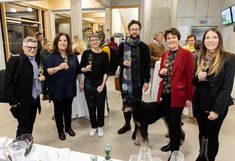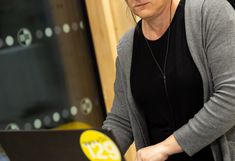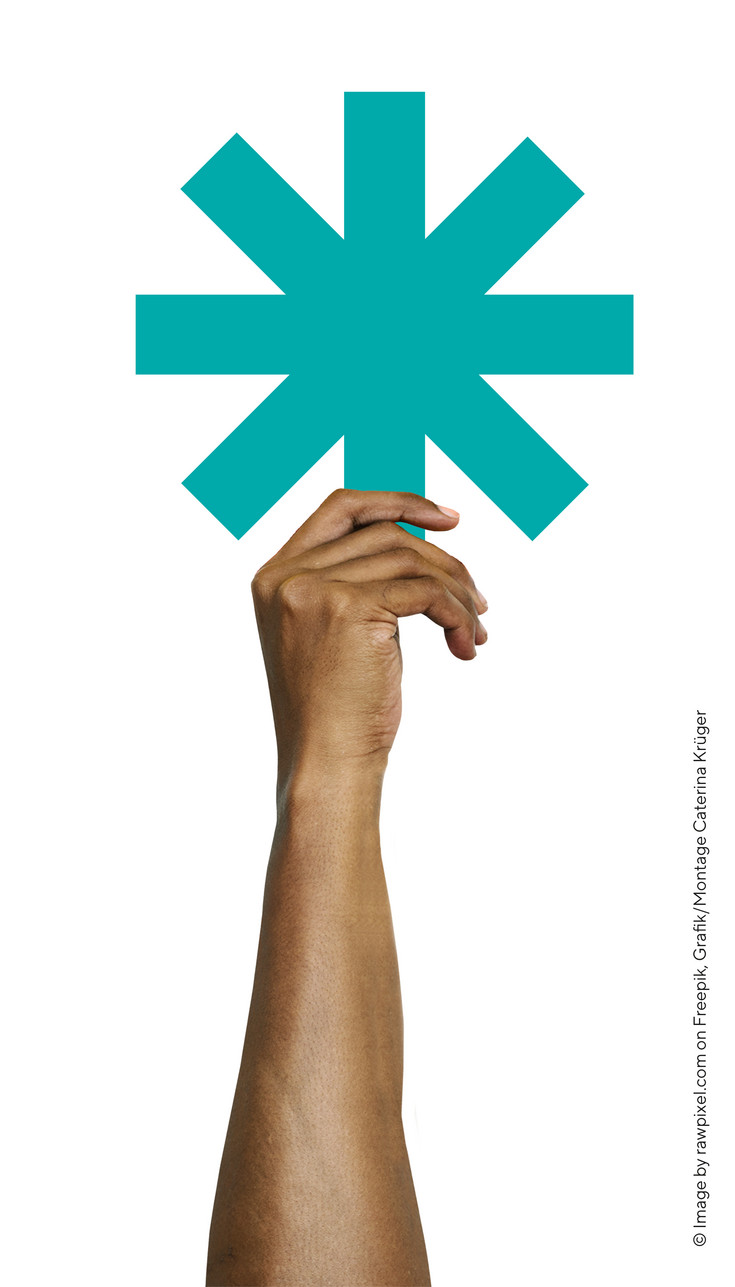Sustainable Diversity – BOKU Diversity Strategy

Diversity Strategy BOKU University
The English version of the BOKU University Diversity Strategy from November 2025 is provided here in an accessible PDF version.
The English executive summary of the BOKU University Diversity Strategy from November 2025 is provided here in an accessible PDF version.
The diversity strategy was developed in a participatory process based on a draft bythe Diversity Steering Group and with the involvement of key stakeholders (such as the Working Group for Equal Treatment Issues, works council members of general and scientific staff, the Ethics Platform, the BOKU University Student Union, the Senate, and the University Council). On November 4, 2025, the strategy was officially adopted by the Rectorate, and on November 19, 2025, it was unanimously endorsed by the Senate. The Senate supplemented its resolution with the wish that the diversity strategy would gain broad application and support.
Diversity Day on June 5, 2024
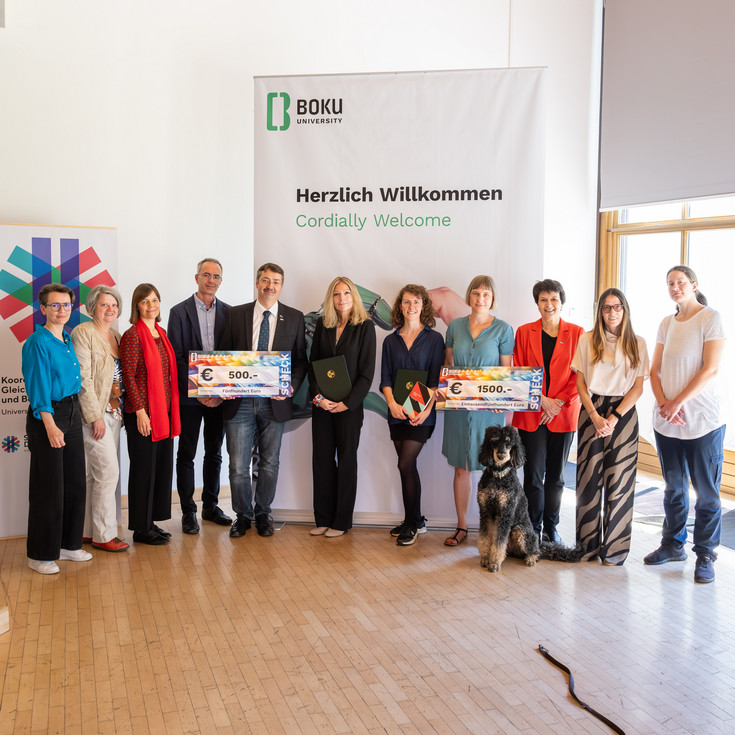
On June 5th we celebrated the first BOKU Diversity Day in Tulln - all BOKU members were cordially invited!
Together, we are sending a powerful signal for more diversity and against discrimination and violence.
The first item on the program was the raising of the new progress rainbow flags at the UFT and IFA.
The second highlight was the presentation of the first diversity awards for research projects at BOKU - in a pleasant atmosphere with a buffet and drinks. You can find more information about the Diversity Award under the following link: https://short.boku.ac.at/diversityaward_research
Departure and Arrival
Meeting point Bahnhof Spittelau 8:45 Uhr
Departure Wien Spittelau 9:02 am – Ankunft Tulln 9:45 am
Gemeinsame Rückreise
Tulln Bahnhof 13:03 pm – Ankunft Spittelau 13:45 pm
All costs including travel expenses and meals will be covered. We look forward to many participants and ask you to register by May 10 at kostelle@boku.ac.at
Photo Gallery Diversity Day in Tulln 2024
Diversity Award for research 2024

In December 2023, BOKU announced the Diversity Award for Research for the first time. The award ceremony will take place at the first BOKU Diversity Day on June 5, 2024 in Tulln.
The establishment of the award is a measure of the diversity strategy that has been implemented at BOKU and is intended to radiate into all fields of action at our university - as in this case in the field of diversity and research.
You can find more information at the following link: https://short.boku.ac.at/diversityaward_research
Minerva Awards 2024

Minerva Awards - BOKU's diversity strategy makes it onto the shortlist
Around 100 organizations and companies submitted entries for the WEconomy "Diversity Leaders Challenge". The best were honored at the Minerva Awards on April 28, 2024 at the Radiokulturhaus.
Success for BOKU's diversity strategy! Sustainable Diversity, the name of the participatory and sustainable diversity strategy of the Coordination Office for Equality, Diversity and Disability, has made it onto the shortlist of the 30 best and most innovative companies in the field of diversity in the "Diversity Leaders Challenge". The three winners - Wiener Stadtwerke Group, Manz Verlag and ÖBB Holding - were honored at the Minerva Awards on April 28, 2024 at the Radiokulturhaus.
BOKU's participatory, transparent and sustainable diversity strategy combines the future topics of diversity, inclusion and social sustainability. Maciej Palucki, Ela Posch and Ruth Scheiber-Herzog are responsible for the strategy and its operational implementation.
Kick-off steering group June 2023
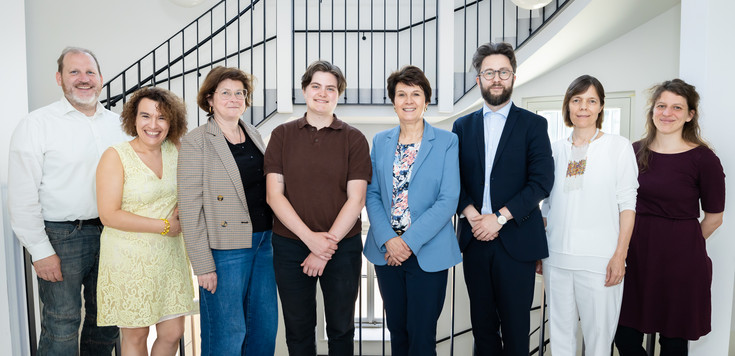
Steering group Diversity strategy
BOKU's diversity strategy has set itself core objectives such as equality & anti-discrimination, accessibility & inclusion, compatibility, intergenerational equity, social inclusion and ethnic diversity, as well as meta-objectives such as transparency through communication. The aim is to share the steps and procedures within the strategy with as many BOKU members as possible:
On June 1, the Diversity Strategy Steering Group was launched in the Gregor Mendel House. It was set up by Rector Eva Schulev-Steindl and is moderated by Maciej Palucki.
The steering group will meet twice a year in order to network the various fields of action in the sense of a holistic approach, to stimulate new ideas, to recognize problems, to pick up on moods in their areas and to support and promote the agendas in the field of diversity at BOKU internally.
Status Quo March 2023
With its commitment to implementing a diversity strategy, BOKU has set itself the goal of making the university more equal opportunity, more inclusive and more diverse. After the first participatory milestone of the process - the kick-off event of the strategy in the context of the "Werte im Wandel" days in November 2022, the Coordination Office for Gender Equality, Diversity and Accessibility (Ko-Stelle) continues to work intensively with the client of the strategy, the university management. Meetings with BOKU members and stakeholders take place on an ongoing basis in order to be able to implement and realize diversity jointly and effectively. In total, about 100 measures have been identified so far in this participatory process, which are now being reviewed in terms of feasibility, financial viability and effectiveness in exchange with the rectorate and will be elaborated in detail in the future. The first measures within the framework of the diversity strategy will be implemented before the end of 2023 and will be visible at the University of Natural Resources and Life Sciences.
Kick-off Diversity Strategy 2022
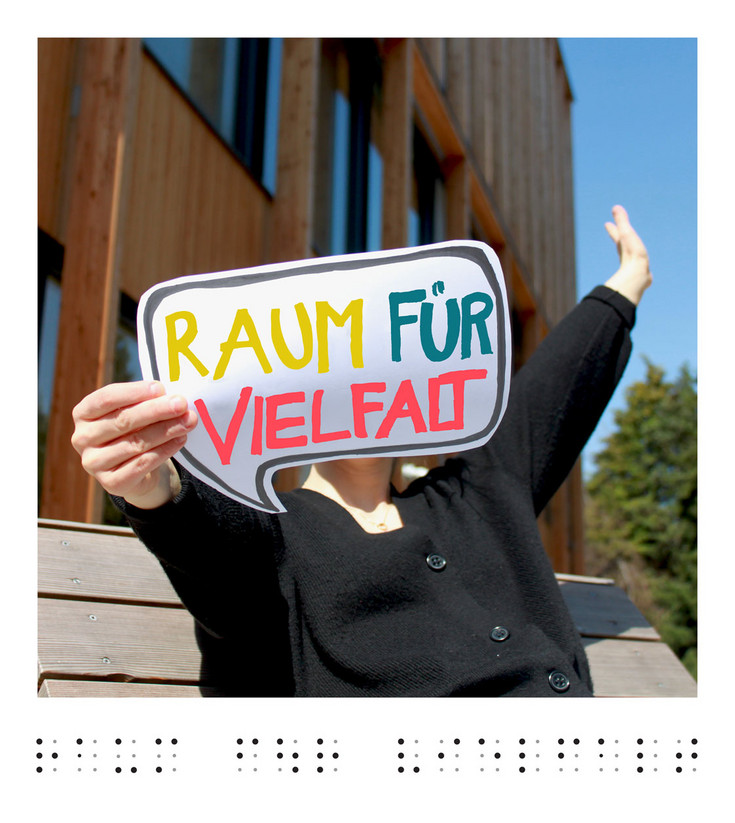
Vor dem Hintergrund des Ilse-Wallentin-Hauses hält eine Person das Schild mit der Aufschrift "Raum für Vielfalt" in die Kamera.
How should diversity be lived and experienced at the University of Natural Resources and Life Sciences in the future?
At the kick-off of the BOKU Diversity Strategy (DSB) on November 16 from 13:00 to 17:00 this important question will be answered in a participatory way. All BOKU members are cordially invited to participate and to jointly contribute ideas and recommendations for action at the kick-off. They will be accompanied by BOKU internal and external experts in the fields of equality, diversity and inclusion.
Welcome Rector LL.M. Univ.Prof. Mag. Dr.iur. Eva Schulev-Steindl
Keynote Dr.in Roswitha Hofmann
World Café Within the framework of a World Café format, topic tables on the individual fields of action will be available: Diversity and University Management, Diversity and Studies, Diversity and Teaching, Diversity and Research, Diversity and International Affairs, Diversity and Human Resources, Open Topic Table Diversity and (...). Along guiding questions, important impulses for BOKU can be discussed and ideas for measures can be contributed.
Moderation Gabriele Bargehr, DSA.in, MSc
Exchange and Networking After the content-related exchange, there will be time for further exchange over snacks and DJ sounds.


